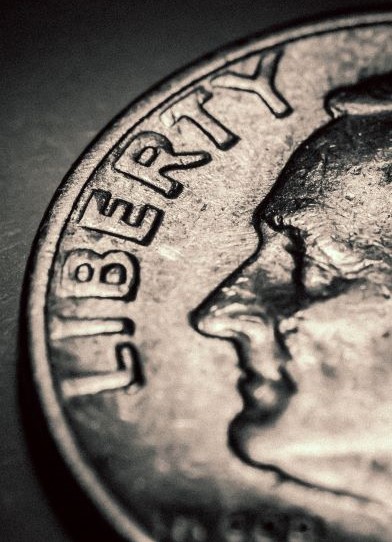Richard Eggers was a law-abiding man. He always had been. So one can only imagine his shock. Mr. Eggers was 68 years old. He had been employed as a customer service representative with Wells Fargo Home Mortgage in Des Moines, Iowa. He did his job well and everyone liked him. Then Eggers was summarily fired. His offense?
Back in 1963, when he was nineteen, Eggers inserted a fake dime into laundry machine. The local sheriff, who apparently had witnessed the crime, arrested him and he was charged with “operating a coin-changing machine by false means.” Sentenced to fifteen days in jail, Eggers served two and was released to return to college. He also paid a fifty dollar fine and the case was closed.
Until nearly a half century later.
You see, Richard Eggers wasn’t a law-abiding citizen after all - not technically. When his criminal wrong-doing finally caught up with him, his decades-old teenage prank cost him more than a dime. It cost him his job. Wells Fargo, following an understandable outcry that went suddenly viral, stuck to its guns - and the letter of the law: “We understand the outpouring of concern for Mr. Eggers and we want people to know that we take this matter very seriously,” the company said in a statement. “Wells Fargo is an insured depository institution, a global bank, bound by U.S. Federal law to protect our customers and their personal financial information from someone who we know has committed an act of dishonesty or breach of trust - regardless of when the incident occurred. It is uncomfortable, but it is a law that we have to follow. We have the responsibility to avoid hiring or continuing to employ someone who we know has a criminal record.”
This is the law - no exceptions - not even for a man reformed from his youthful “act of dishonesty”. Richard Eggers’ past may have been distant and his infraction minor but Wells Fargo’s high standards would never be breached by “someone who we know has a criminal record.”
God’s standards exceed even those of Wells Fargo Bank. He cannot tolerate sin; his eyes cannot even look upon it. His righteousness and holiness can brook no transgression - not even a kid stealing ten cents from a laundry mat fifty years ago. The Bible is explicit: “The soul that sinneth, it shall die.” (Ezekiel 18:4). Paul tells us that we all have sinned and have fallen short of God’s unapproachable glory (Romans 3:23). He also says that God’s law - perfect and uncompromising - serves to place us and our sinful past - no matter what and when it was - under a withering indictment from which there is neither escape nor excuse. “No one can ever be made right with God by doing what the law commands. The law simply shows us how sinful we are.” (Romans 3:20).
The scriptures are clear: the law cannot save, it can only condemn. Yet our past need not come back to haunt us. We’ll never lose heaven because of something God will discover about the record of our lives. He already knows. There is hope. When we place our faith in his Son Jesus Christ and his finished work on the cross and we trust in him to forgive the sins of our past, God does more than forgive - he forgets.
“For I will be merciful to their unrighteousness, and their sins … will I remember no more” (Hebrews 8:12).
Some people neither forgive nor forget. We can struggle also to forgive ourselves and our memories harass us. Satan is always dredging up our past and whispering condemnation, trying to rob us of peace and joy. He’ll throw up every last fake dime in our face. In his grace, God does the opposite. The prophets write of a God who “delights to show mercy” and who “will again have compassion on us” and “tread our sins underfoot and hurl all our iniquities into the depths of the sea.” (Micah 7:18-19).
Before his throne you are declared innocent. God will never conduct an excavation or a background check. He knows. He forgives. He forgets. Our records are not just sealed, they’re expunged. David wrote with confidence out of his own tragic experience with sin when he declared that God’s love is as great as heaven is high and that “as far as the east is from the west, so far hath he removed our transgressions from us.” (Psalm 103: 11-12).
Dramatically delivered from his own abundant and blotted past, Paul asks: “Who dares accuse us who God himself has chosen for his own? No one - for God himself has given us right standing with himself. Who then will condemn us? No one - for Christ Jesus died for us and was raised to life for us, and he is sitting in the place of honor at God’s right hand, pleading for us.” (Romans 8:33-34, emphasis added).
Our Advocate pleads our case. Nothing - not even a fifty year- old fake dime - can ever condemn us before the presence of a just God who remembers our sins no more. When we come to him, confess our sin and seek his forgiveness, God clears the record. Case closed.

